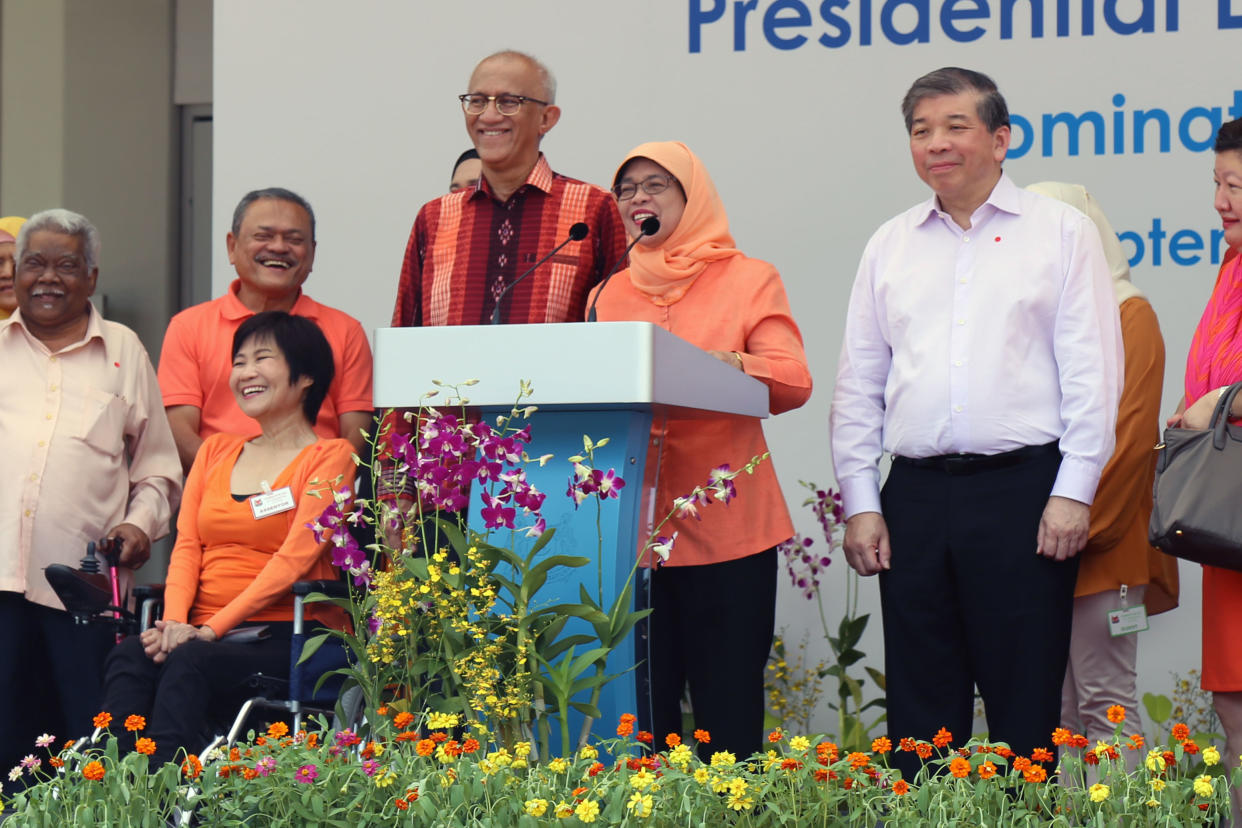COMMENT: Singapore presidency with an asterisk and a government that was blindsided

Halimah Yacob’s presidency has been tainted. The eighth President of Singapore will continue to be haunted by an electoral process that pushed her into a whirlpool of vitriol as her status as a Malay was questioned and her financial nous put under the microscope.
The 63-year-old made a strategic error in choosing to contest the presidential election as the government’s unofficial candidate. Today she stands accused of all kinds of cruel charges that are not worth mentioning here. Now we have an Elected President with an asterisk. Pity Halimah.
I met her thrice. Each time, she impressed with her genteel nature and her desire to do good to workers and the disadvantaged. One of these occasions was when I took a group of Asian journalists to meet her. They were in Singapore as part of a three-month fellowship programme. They came out impressed with the way she spoke to her constituents who had gone to see her as part of her meet-the-people session.
If she had fought an open election, she could have won it without much difficulty. If Prime Minister Lee Hsien Loong had not manoeuvred too hastily to change the rules of the game and if he had understood his populace better and managed the process smartly, we would be celebrating Singapore’s first woman President and a tudung-wearing one at that. Pity Singapore.
The run-up to the election has inflicted a serious wound, especially on Malays, which will take a long time to heal. There are enough Malays who feel that they have been turned into political pawns in the People Action Party’s game to stop presidential hopeful Tan Cheng Bock from contesting.
Many Malays have questioned the very basis of this election. In the first place, they didn’t feel the need to have a Malay President and even if they felt the need they would have preferred one who contested on equal terms, not on a preferential basis. By putting such a high bar — experience of managing a company with $500 million shareholder equity in the last three years for private-sector candidates — the government must have known that getting qualified Malays to contest would have been an impossible task.
Even if there were individuals who would have qualified, not many would have wanted to fight the government’s unofficial candidate. PM Lee said confidently when he was asked if there were Malays who would qualify, “There are qualified Malays, there are qualified Singaporeans.” Today those words are being ridiculed.
Worse, there was so much scrutiny on the Malayness of the three contestants that forced many Malays to ask themselves whether there was a true-blue Malay among themselves.
This debate is something PM and his team had never expected and it shows how the government had been totally blindsided by an electorate that would chuck the official narrative aside and let their counter narrative prevail. The implications are huge as the government’s control of its message will be muddied and muddled by a population that will use social media to press their points of view.
If there is one political lesson to be learnt by the government from this badly-thought-out exercise it is this: Don’t take Singaporeans for granted.
Writer’s note: This is my first commentary on the Elected Presidency. I and two others were in the media team helping presidential hopeful Salleh Marican and felt conflicted about it. Now that our engagement with Salleh is over, I am free to write. I have not used any information from my work for him in this article.
P N Balji is a veteran Singaporean journalist who was formerly chief editor of Today, as well as an editor at The New Paper. He is currently a media consultant. The views expressed are his own.
Related stories:
Overwhelmingly negative sentiment after decision on Halimah Yacob’s presidential eligibility: report
PE 2017: PEC decision on Halimah Yacob’s eligibility sparks #notmypresident hashtag
‘Even though this is a reserved election, I am not a reserved president’: Halimah Yacob
Second Chance CEO Salleh Marican: Hope President-elect Halimah Yacob will ‘heal the wounds’



